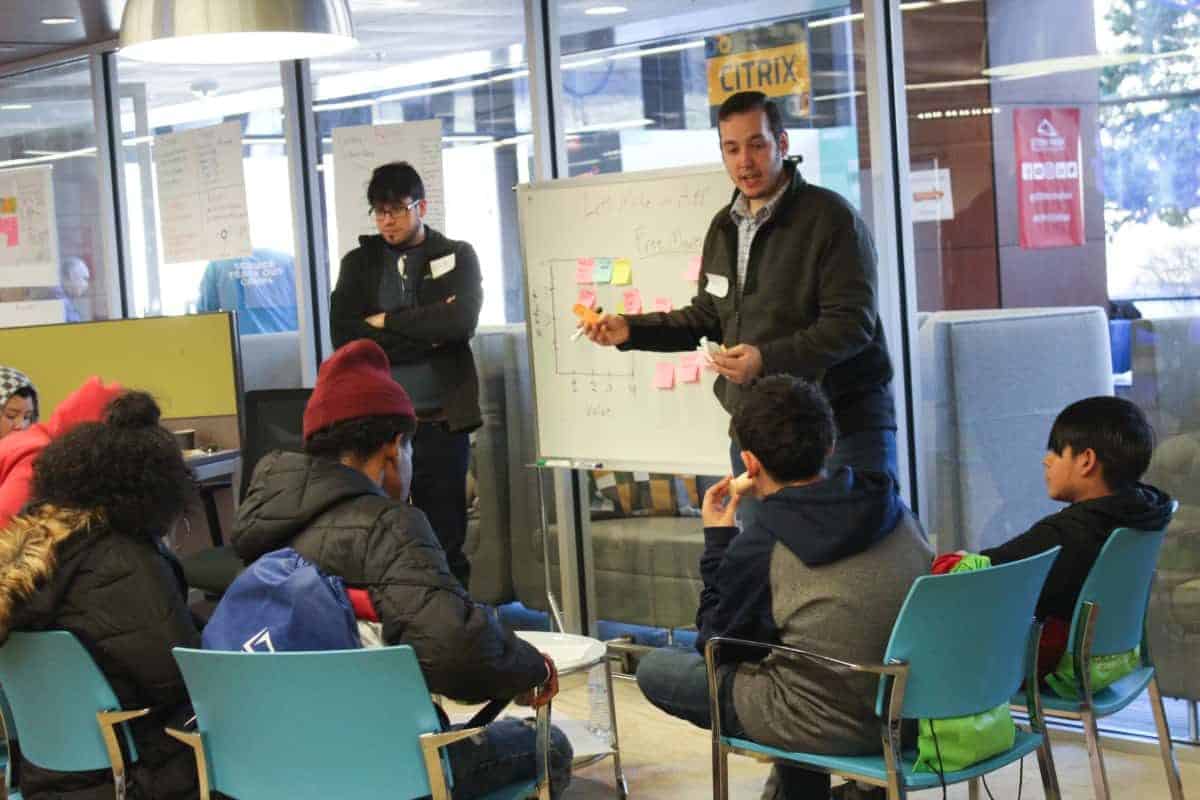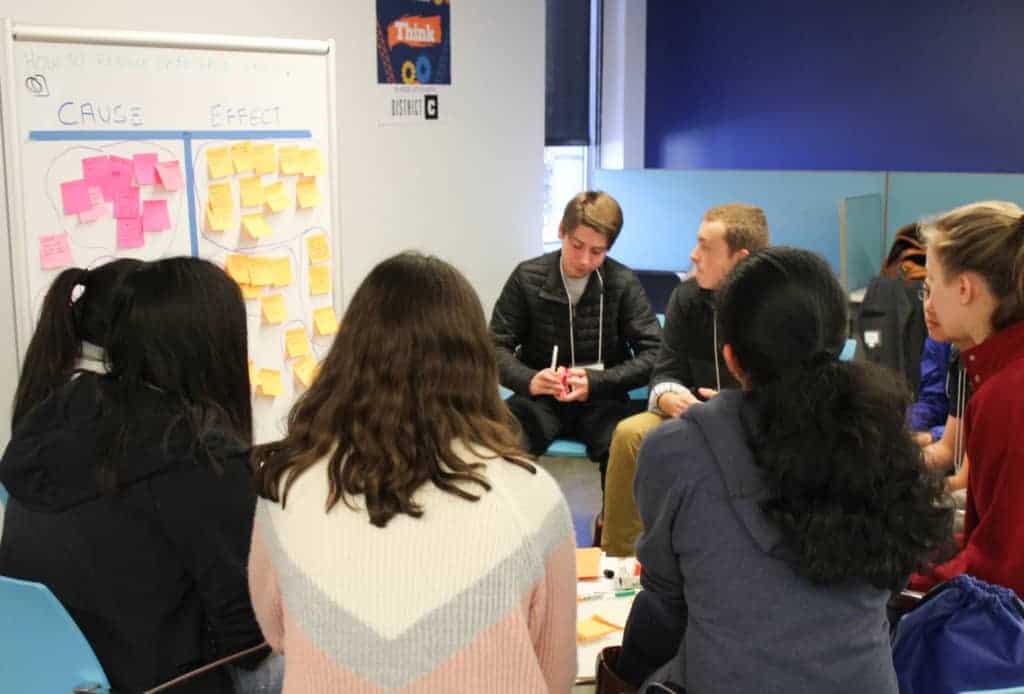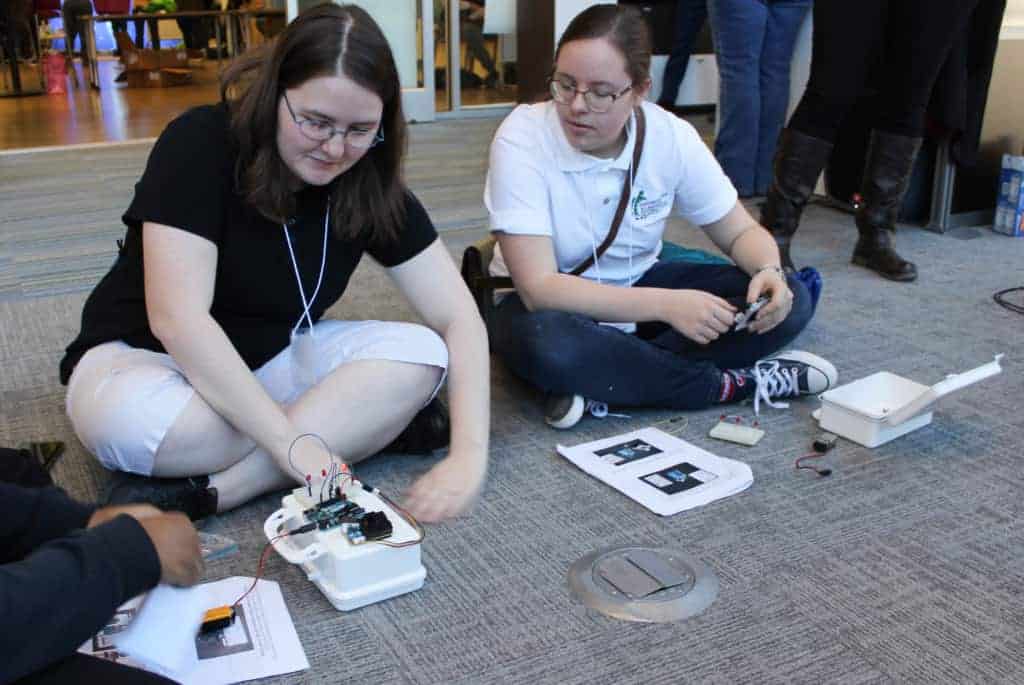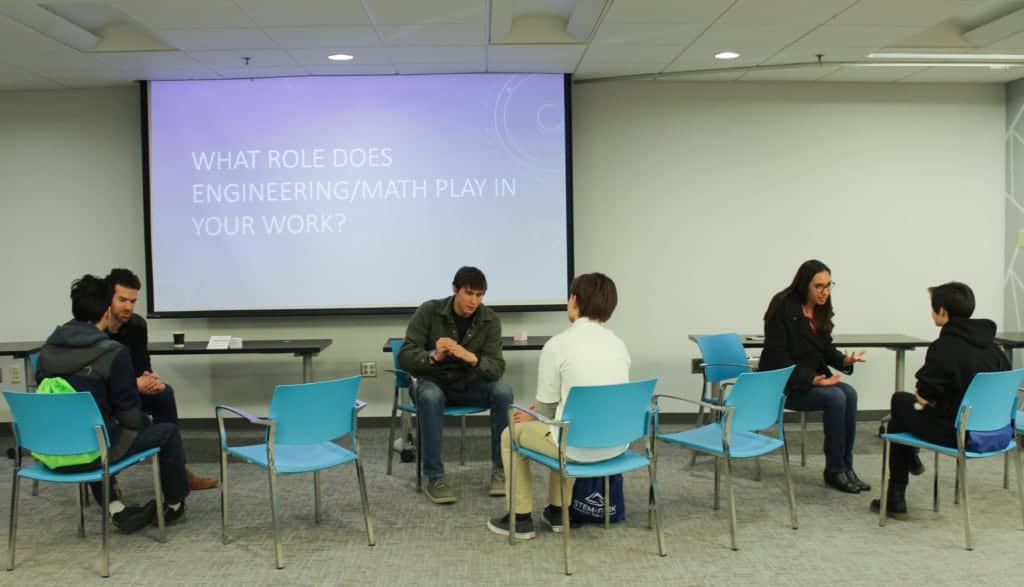

One hundred and eighty students bustled through Frontier’s 800 building in RTP last Friday for the Engineering and Math Fest hosted by STEM in the Park. In the atrium, students sat on the floor adjusting wires in a build-your-own particulate matter sensor at a booth manned by the EPA. In another space, students broke off into groups to think through real-world problems posed by companies like Citrix, RTI, and NetApp. Through another activity, students participated in five-minute speed mentoring sessions with people who worked in STEM fields.


“There’s tech companies here. There’s construction companies here. EPA is here,” said Sarah Windsor, director of STEM in the Park. “So that’s kind of the beauty of the interdisciplinary aspect of STEM.”
McLean Harris, a junior at Southeast Raleigh Magnet High School, participated in a “Think” session with RedHat. “They were trying to figure out how to collect data for customer retention,” he said. “We had to figure out what our different categories were and what would make the best customer retention — why people would want to come back.”
Sophomore Elijah Jamison of Louisburg High School was placed with IBM for his problem-solving session. “If a new student came to our school, we had to create something that would help them learn our school rules and where everything is, so we created an app,” he explained.
“Those are teams of people at companies that have brainstormed, that have been in meetings about today,” Windsor said of the Think and Imagine sessions by companies for students. “So it really kind of shows the value that those adults are placing in the next generation.”
The seventh through 12th graders participating in the STEM fest represented seven different schools and five different counties including Wake, Franklin, Warren, Person, and Durham. The broad reach worked to fulfill STEM in the Park’s mission to “create a community where every child has the chance to explore and pursue a career in STEM.” Meanwhile, companies like Biogen, SAS, and Cree shared the diverse applications of science in their respective industries of medicine, software engineering, and LED lights.


At the EPA’s Imagine station focused on air quality, students learned how to troubleshoot a particulate matter sensor and learned about the importance of clean air.
“I hope that they walk away with a different sense of what happens at the EPA, that there is engineering that happens there,” said Lauren Bamford, a contractor at EPA who works in community engagement and STEM education. “If they’re interested in engineering, they can combine that with an interest in the environment as well if they’d like.”
“We want to share that there isn’t just one path to get to a STEM career,” Windsor said, adding that the activities, and especially speed mentoring, gave students the opportunity to learn more about themselves.
Speed mentor Anne Magnuson, associate department head of math and physics at Wake Tech, took the time to share with students that while putting the time into STEM classes was important, so were other traits like maturity and good study habits.


“There’s so much stress on STEM and promoting STEM that I didn’t really think that was what I needed to focus on as much,” Magnuson said. The emphasis away from school stress and onto opportunities in the field seemed to be a big take away for the students.
“I learned about how at the NC State Engineering program … you don’t actually need all A’s. It’s okay to have a couple of B’s in there, which was really stressing me out,” one student said in a share-out activity at the end of her speed mentoring sessions. “So if you’re not perfect, it’s okay.”


